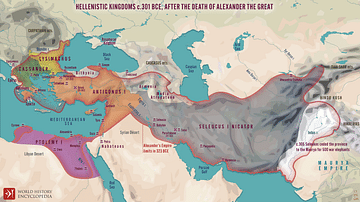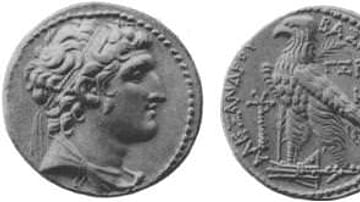The Hellenistic Period refers to the time between the death of Alexander the Great (323 BCE) and the rise of the Roman Empire (32 BCE) in which Greek culture spread throughout the Mediterranean and Near East. Beginning with a series of conflicts between Alexander's top generals known as the Wars of the Diadochi, the time period would see major innovations in art, mathematics, philosophy, and science. The final Hellenistic kingdom, Ptolemaic Egypt, would eventually fall to Rome when Octavian (Augustus) defeated Mark Antony and Cleopatra VII at the Battle of Actium.
In general, some things characterized this period in opposition of the previous one: The model of the city-state which dominated before was replaced by different kinds of kingdoms, with more centralized power. Moreso, it is the basic idea of administration which changed: It was no longer a matter of managing civic affairs in the name of the community, but by delegation in the name of one personal authority.







